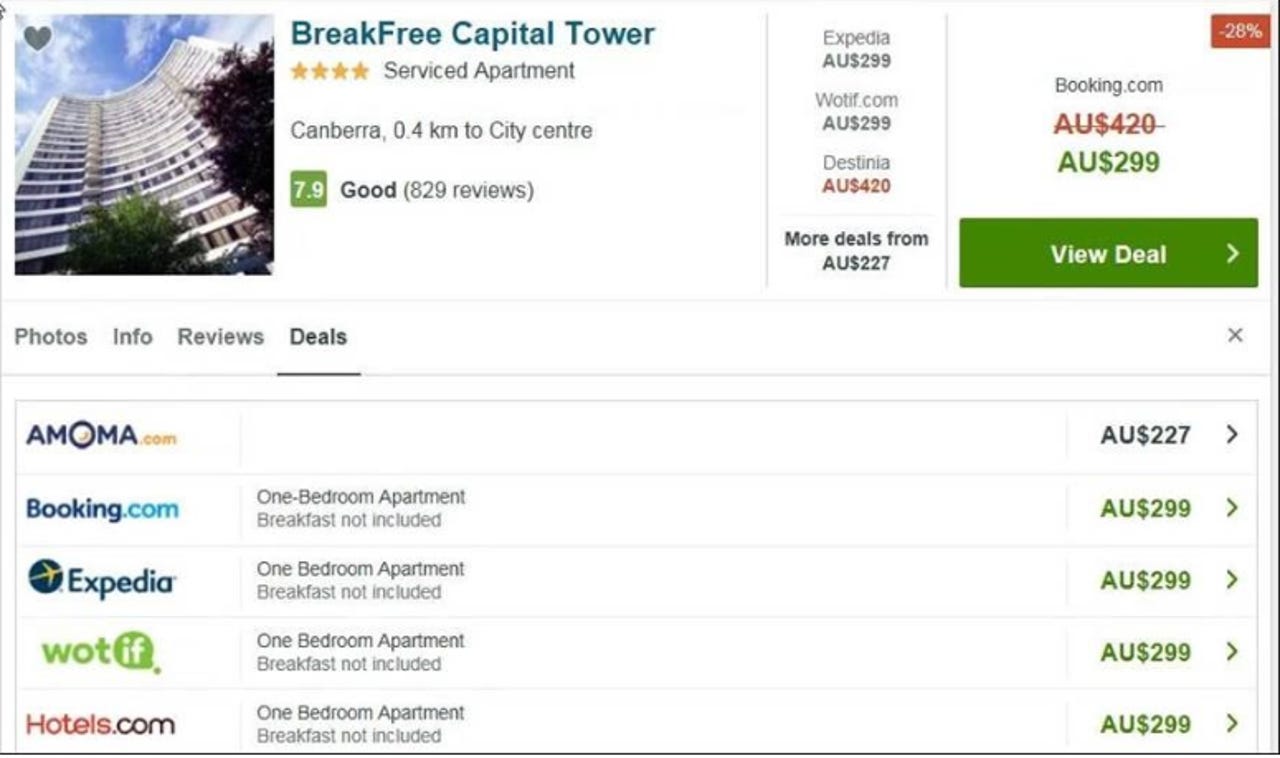Trivago loses appeal over misleading website algorithm ruling


The Federal Court in January found that Trivago breached Australian Consumer Law after misleading consumers about hotel room rates on both its website and television advertisements.
It appealed the decision in March, but the Full Federal Court on Wednesday dismissed the appeal.
The initial ruling declared that from at least December 2016, Trivago was using an algorithm to place "significant weight" on hotel booking sites that paid Trivago the highest cost-per-click fee and, therefore, did not often present the cheapest rates to consumers.
The judge at first instance had found Trivago did not sufficiently disclose to users that it was using this practice.
The primary judge also found Trivago's hotel room rate comparisons that used strike-through prices or highlighted text in different colours gave consumers a false impression that they were making savings because, in reality, Trivago was comparing an offer for a standard room with an offer for a luxury room at the same hotel.
Wednesday's decision by the Full Federal Court upholds the primary judge's decision that Trivago's website representations misled consumers.
"This is a win for consumers and is an important warning to comparison sites that they must not mislead consumers about the results they recommend," Australian Competition Commission (ACCC) chair Rod Sims said.
"We brought this case because we were concerned that consumers were being misled by Trivago's claims that their site was getting the best deal for consumers, when in fact they were shown the deals that benefited Trivago."
Sims said Trivago's conduct meant consumers may have paid more for a room at a hotel than they should have, and hotels lost business from direct bookings despite offering cheaper prices.
The consumer watchdog kicked off court proceedings in the Federal Court against Trivago in August 2018.
"We brought this case because we consider that Trivago's conduct was particularly egregious," Sims said.
"Many consumers may have been tricked by these price displays into thinking they were getting great discounts. In fact, Trivago wasn't comparing apples with apples when it came to room type for these room rate comparisons."
Trivago had previously told ZDNet that it was disappointed by the ACCC's action and would "vigorously defend" its interests.
LATEST ACTION BY THE ACCC
- Fuji Xerox sued by ACCC for creating unfair contract terms with small businesses
- Google labels ACCC's allegations as 'narrow' but will hand over 40 categories of evidence
- ACCC on digital platforms: It's not a case of Schumpeterian creative destruction
- Australian law couldn't block Google's YouTube and DoubleClick purchases: ACCC chair
- ACCC chief determined to peg down NBN entry-level pricing